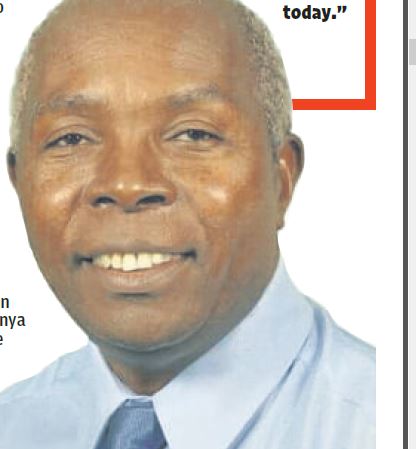×
The Standard e-Paper
Join Thousands Daily

Owing to his academic brilliance, professional excellence, business acumen and political dabbles, Kithinji Kiragu stands out as one of the most illustrious sons of Embu County.
The down to earth and friendly man will easily fit among locals at his Embu backyard and effortlessly immerse in deep and meaningful conversations on a multitude of topics.